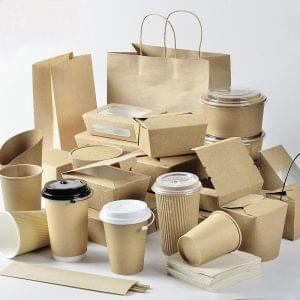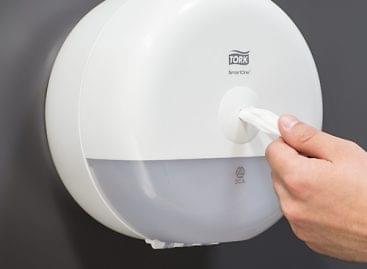The good, the bad and the new

Gábor Győrvári
owner-managing director
Indepack
“In the summer of 2021 certain single-use plastics were banned in Hungary, but many partners interpreted the new law as it referred to all single-use plastic products. This resulted in misunderstandings among our customers too, even though the government decree didn’t cover takeaway boxes” – explained Gábor Győrvári, owner and managing director of Indepack Kft. Kriszta Stampf, managing director of Ecocatering Kft.: “Those single-use plastic products that were actually banned can’t be manufactured and imported since last July, but existing stocks are allowed to be used.”
The price factor
Ms Stampf added that the market of food packaging materials for restaurants shifted in the direction of biodegradable products in the last two years, as the proportion of these increased. At the same time the pandemic made restaurant owners more price-conscious, while the purchasing power of guests dropped. Biodegradable packaging costs 1.5-2 times more than quality plastic packaging.
Mr Győrvári explained that many factors increase the price of compostable/biodegradable products. Manufacturing packaging from paper, wood and other natural materials require switching to new technology, which can’t happen without major investment. The end products cost 30-40% more than classic packaging.

A slow shift towards biodegradable products can be seen on the market of food packaging materials for restaurants
Cause and effect

Kriszta Stampf
managing director
Ecocatering
Kriszta Stampf reckons than sustainable food packaging is used the most frequently in Budapest and Pest County. Changes are the most visible in the catering services at large festivals.
Zsuzsa Keve, environmental advisor of Ecocatering Kft.: “The home delivery of food is now very common. Unfortunately there are also poor quality packaging products in the market, typically imported from the Far East, which claim they are eco-friendly but have no green certification whatsoever. Many people mix up biodegradable packaging materials with those that look like paper.”
Needs and answers
Gábor Győrvári underlined that the use of sustainable packaging mainly depends on the given hospitality segment, e.g. pizzerias proudly communicate that they package in 100% biodegradable material. Indepack Kft.’s estimation is that approximately 40% of restaurant owners already use some kind of biodegradable packaging. The company continuously monitors new products, and they have really positive experiences with containers made from sugar cane. Cutlery made from biomass is also a good development direction.
Kriszta Stampf called attention to the fact that the new rules entailed big changes in the cutlery market, as high quality CPLA cutlery can’t be sold anymore. Ecocatering Kft. is going in the direction of multi-use cutlery. There are eco-friendly versions of these, which are recyclable as they are made with lots of wood fibre, by this reducing their polymer content by nearly 40%. //
The authorities are satisfied

Dávid Tóth
head of department
hospitality and mass catering department/Nébih
According to Dávid Tóth, head of the hospitality and mass catering supervision department the National Food Chain Safety Office (Nébih), since the new regulation entered into force, great progress has been made in phasing out single-use plastics. Most hospitality units started to draft a new strategy and to look for alternative products. Nébih’s experience is that most of them switched to paper and wood products. Several businesses cast their vote on deposit return schemes for the food packaging used. Regular Nébih inspections in this field haven’t led to imposing fines yet. //
Related news
Tork at SIRHA Budapest: hygiene, efficiency and sustainability for the HoReCa sector
🎧 Hallgasd a cikket: Lejátszás Szünet Folytatás Leállítás Nyelv: Auto…
Read more >Bonduelle achieves B Corp™ certification worldwide
🎧 Hallgasd a cikket: Lejátszás Szünet Folytatás Leállítás Nyelv: Auto…
Read more >Avian influenza has appeared in a new farm in Csongrád-Csanád County
🎧 Hallgasd a cikket: Lejátszás Szünet Folytatás Leállítás Nyelv: Auto…
Read more >Related news
Festival buzz at the 60th anniversary EuroShop trade fair
🎧 Hallgasd a cikket: Lejátszás Szünet Folytatás Leállítás Nyelv: Auto…
Read more >No matter how much you save, food and gadgets always take the money
🎧 Hallgasd a cikket: Lejátszás Szünet Folytatás Leállítás Nyelv: Auto…
Read more >








